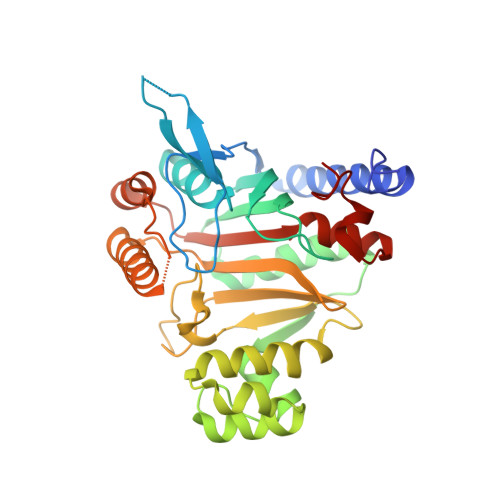PoxA, yjeK, and elongation factor P coordinately modulate virulence and drug resistance in Salmonella enterica.
Navarre, W.W., Zou, S.B., Roy, H., Xie, J.L., Savchenko, A., Singer, A., Edvokimova, E., Prost, L.R., Kumar, R., Ibba, M., Fang, F.C.(2010) Mol Cell 39: 209-221
- PubMed: 20670890
- DOI: https://doi.org/10.1016/j.molcel.2010.06.021
- Primary Citation of Related Structures:
3G1Z - PubMed Abstract:
We report an interaction between poxA, encoding a paralog of lysyl tRNA-synthetase, and the closely linked yjeK gene, encoding a putative 2,3-beta-lysine aminomutase, that is critical for virulence and stress resistance in Salmonella enterica. Salmonella poxA and yjeK mutants share extensive phenotypic pleiotropy, including attenuated virulence in mice, an increased ability to respire under nutrient-limiting conditions, hypersusceptibility to a variety of diverse growth inhibitors, and altered expression of multiple proteins, including several encoded on the SPI-1 pathogenicity island. PoxA mediates posttranslational modification of bacterial elongation factor P (EF-P), analogous to the modification of the eukaryotic EF-P homolog, eIF5A, with hypusine. The modification of EF-P is a mechanism of regulation whereby PoxA acts as an aminoacyl-tRNA synthetase that attaches an amino acid to a protein resembling tRNA rather than to a tRNA.
- Department of Molecular Genetics, University of Toronto, Toronto, Ontario, M5S 1A8, Canada. william.navarre@utoronto.ca
Organizational Affiliation:



















